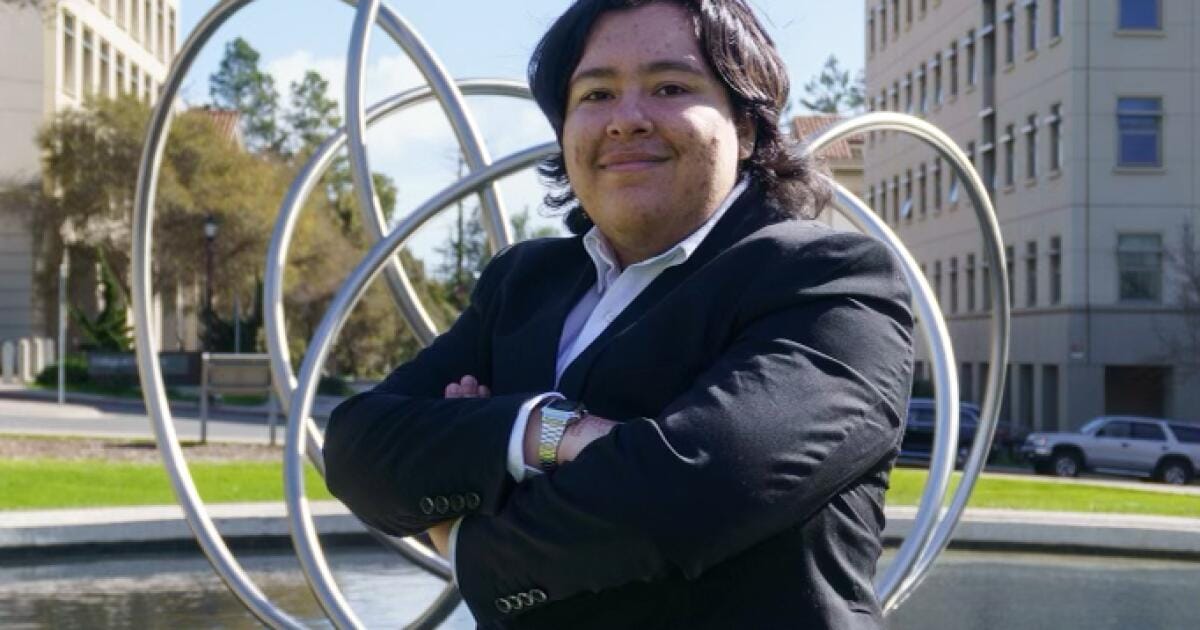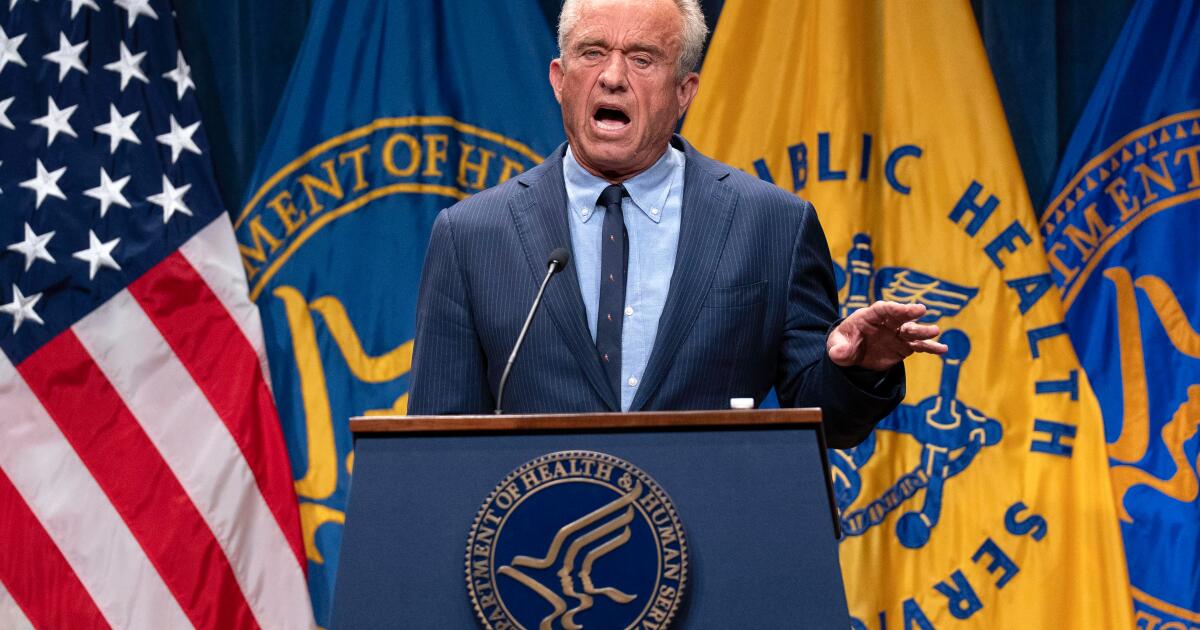California state bill AB 602 would ensure college students seeking overdose help don’t get disciplined
On the night TJ McGee overdosed from a mixture of drugs and alcohol in his freshman year at UC Berkeley, his friends found him passed out in the hallway by their shared dorm room.
The roommates tried to help, but when McGee stopped breathing, they called 911.
McGee survived and, racked with guilt over what happened that night, committed to confronting his substance-use problem. Then, in the days that followed, McGee received a surprise email from campus officials that ushered in a whole new wave of emotions.
The letter said the administration would be placing McGee on academic probation for violating Berkeley’s residential conduct rules against drug and alcohol possession, use and distribution — possibly jeopardizing his academic career.
“They made me feel as if I was a villain for the choices I made,” said McGee, 20, now a junior. “I felt shameful enough already.”
Today, McGee speaks regularly in support of California State Assembly Bill 602, which would prohibit public colleges and universities from punishing students if they call 911 during an overdose emergency, or if a peer does so on their behalf. It requires schools to offer rehabilitation options and requires students who seek emergency medical assistance to complete a treatment program.
“The bill would protect students just like me from even receiving a letter like that,” and ensures that they are given care instead, McGee said.
The bill recently passed in both houses of the state Legislature; it awaits Gov. Gavin Newsom’s signature. A spokesperson for Newsom said he typically does not comment on pending legislation.
Despite a recent nationwide plunge in the number of deaths stemming from synthetic opioids such as fentanyl and contaminated versions of those drugs, overdose remains the leading cause of death for Americans age 18 to 44, according to the Centers for Disease Control and Prevention.
Though numbers could be revised as new data from California come in, the CDC provisionally estimates a 21% drop in overdose deaths in the state to 9,660 between March 2024 and March 2025, compared with 12,247 in the previous 12-month period. Opioid-related deaths, in particular from fentanyl, made up the bulk of California’s overdose fatalities in 2023, the most recent year for which statistics are available on the state’s opioid-prevention website.
In response, California started requiring campus health centers at most public colleges and universities to make the opioid overdose-reversing nasal spray Narcan available to students in campus residences.
McGee said that while he hadn’t taken any opioids the night of his overdose, he was administered Narcan while incapacitated.
Advocates for AB 602 say more needs to be done to increase the likelihood that college students will seek immediate help during a drug-related emergency.
It’s important for lawmakers and college officials to realize how much fear is involved when an overdose occurs — not just with the person who is overdosing but among peers who seek to help but don’t want to get a friend in trouble, said UC Berkeley student Saanvi Arora. She is the founder and executive director of Youth Power Project, a nonprofit that helps young people who’ve had adverse health experiences use their personal stories to promote policy reforms.
“California has dramatically increased investments in school-based mental health and crisis-intervention resources and access, for example to fentanyl testing strips on college campuses and access to Narcan,” Arora said. “But one big gap that we see … is that there’s still a really low utilization rate among young people and students.”
Fear of academic probation, suspension or expulsion leads some students with substance-use problems to avoid reaching out to residential advisors, instructors or school administrators for help, leaving them feeling so isolated that they see few other options besides turning to the police as a last resort or doing nothing at all, Arora said.
Youth Power Project authored a bill to combat these problems; Assemblymember Matt Haney (D-San Francisco), its chief sponsor, introduced it to the state Legislature this past spring. “During an overdose any hesitation can be deadly,” the lawmaker said in a statement. “AB 602 makes it clear that calling 911 will never cost you your academic future.”
Campus discipline and legal prosecution can be counterproductive if the goal is to prevent overdose deaths, said Evan Schreiber, a licensed clinical social worker and director of substance abuse disorder services at APLA Health, an L.A.-based nonprofit that offers mental-health and substance-use services and backs the bill.
“By removing the fear of consequences, you’re going to encourage more people to get help,” Schreiber said.
Schreiber and Arora said AB 602 extends to places of higher learning some of the protections guaranteed to Californians outside of campuses under the “911 Good Samaritan Law,” which went into effect in 2013 to increase the reporting of fentanyl poisoning and prevent opioid deaths.
That law protects people from arrest and prosecution if they seek medical aid during an overdose-related emergency, as well as individuals who step in to help by calling 911. It doesn’t, however, cover disciplinary actions imposed by colleges and universities.
One difference between the 911 Good Samaritan Law and the version of AB 602 that passed both houses of the Legislature is that the latter does not cover students who call on behalf of an overdosing peer and who are themselves found to have violated campus alcohol and drug policies, said Nate Allbee, a spokesperson for Haney. Allbee noted that Haney hopes to add this protection in the future.
Even though AB 602 doesn’t include all of the protections that supporters wanted, the rule solves what Arora identified as a major problem: UCs, Cal State campuses and community colleges in California are governed by a patchwork of policies and conduct codes regarding substance use that differ from campus to campus, making it difficult for students to know where they stand when they are in crisis.
McGee said he wished he’d learned more about the support services that were available to him at Berkeley before his overdose. But he was already struggling emotionally and living on his own when he entered college in fall 2023.
McGee described growing up in an environment in which substance use was common. He never felt that he could turn to anyone close to him to work through feelings of loneliness and bouts of depression. It was easier to block it all out by partying.
McGee started using harder drugs, missing classes and spending whole days in bed while coming down from his benders. He wouldn’t eat. Friends would ask what’s wrong, but he’d stare at the wall and ignore them. His grade-point average plummeted to 2.3.
Some of the friends who helped McGee on the night of his overdose grew distant for a time, too dismayed over the turmoil he was causing himself and those around him.
McGee knew he needed to keep trying to salvage his academic career and earn back the trust of his peers. All he could think was: “I need to fix my grades. I need to fix myself.”
One day during his recovery, McGee sat his friends down, apologized and explained what he was going through.
Then in his sophomore year, McGee happened to be lobbying lawmakers in Sacramento over campus funding cuts when he overheard a separate group of students from Youth Power Project talking about a bill they authored that would become AB 602.
It was like eavesdropping on a dark chapter in his own life. McGee agreed to present the bill to Haney and share his experience at meetings with legislators and in hearings.
McGee’s disciplinary probation on campus lasts until the end of 2025, but working on the overdose bill has given him a new sense of purpose. A psychology major, McGee eventually took on public policy as a minor.
“I feel like I became a part of this bill and it became such a large source of hope for me,” McGee said. “It would be amazing to see this support and care implemented nationally. This is not just a California issue.”

